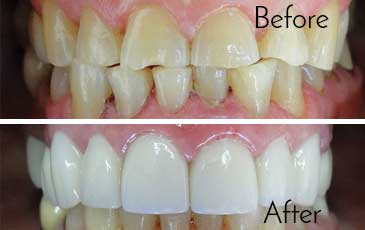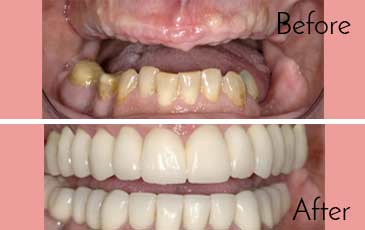
Apisectomy
What it's used for?
If a root canal procedure has been done in the past and it becomes infected again, it's often because of a problem near the apex of the root. In many cases, a second root canal treatment is considered before an apisectomy. With advance technology, at Kotilingams dental clinic dentists often can detect other canals that were not adequately treated. In this case, they may be able to clear up the infection by doing a second root canal procedure. This will avoid the need for an apisectomy.
Preparation
Before the surgery, we may take more X-rays of the tooth and surrounding bone. You may be given an antimicrobial mouth rinse, a medicine to reduce inflammation, and/or antibiotics.
We will also review your medical history. So, make sure you tell us all medicines you take. This includes over-the-counter medicines. Vitamins and supplements. Depending on other existing medical conditions, we may consult with your physician before the procedure.
Follow-Up
We will tell you which medicines to take and what you can eat or drink. You should apply ice to the area, alternating 20 minutes on and 20 minutes off. The area may bruise and swell. It may be more swollen the second day after the procedure than the first day.
To allow for healing, avoid brushing the area or rinsing vigorously. Don't smoke or eat crunchy or hard foods. Do not lift your lip to examine the area. This can loosen the stitches and disrupt formation of the blood clot that is needed for healing.
You may have some numbness in the area for days or weeks after the surgery. If so, tell us about it. The numbness usually goes away with time.
Your stitches may need to be removed 2 to 7 days after the procedure, or they may dissolve by themselves. All soreness and swelling are usually gone within 14 days.


